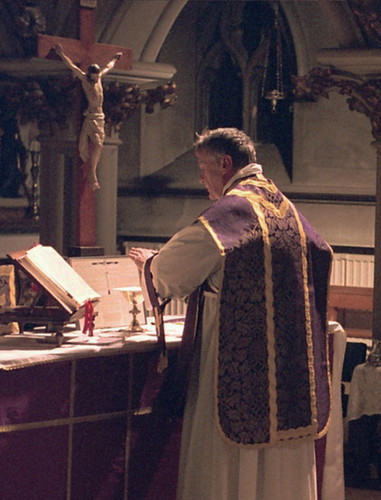
Over the past couple of years, all possible variants of the Mass were tried at St Mary Magdalens's, Brighton, including vernacular mass with the priest facing east.
The general conclusion that from the congregation's point of view it was actually less "elitist" for the priest to be facing the same way as everyone else. It wasn't a question of the priest turning his back, but rather, the priest leading a procession or pilgrimage towards the Lord.
From the priest's point, it was less distracting. Furthermore, the priest was in the habit of scowling at the congregation when he got distracted, which was even more off-putting all round.
The orientation of the priest towards the liturgical restores the clarity of the architectural arrangement whereby there is a sequence of spaces and objects from nave, to sanctuary to altar, tabernacle and cross. This removes the spatial ambiguity that arises when the priest is standing between the altar and the cross. It also emphasises the theological point that the mass is primarily the Sacrifice of Calvary and not a re-enactment of the Last Supper.
It was felt that having the priest facing east was of more value than saying mass in the vernacular, especially after the new English translation came into use. The main advantages of Latin were that it restored access to the musical tradition and should, in the long run, help to reunite a parish cut up by language into national groups.
The orientation of the priest is discussed in this book by Fr Michael Lang.
Turning towards the Lord
Kommentarer